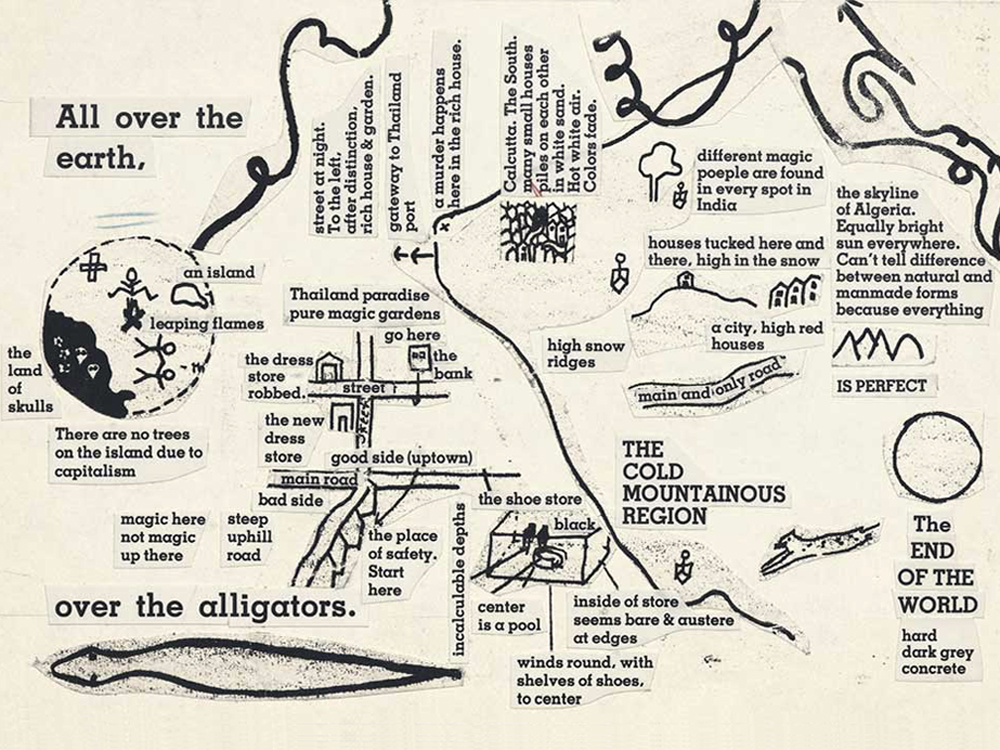After successful completion of the course, students are able to independently write a scholarly essay of at least 5,000 words in the field of feminist theory on a topic of their choosing. Students will be equipped with the skills required to write such an essay, which include the practice of critical reading and writing, as well as the application of critical thinking to architecture, the arts, and wider social issues. Students will attain an understanding of intersectional feminist theory as a methodology for considering dynamics of space in physical as well as digital environments.

© Kathy Acker
Feminist spatiality is a term that simultaneously suggests feminist approaches to spatial practice and spatial readings of feminist literature and theory. What does it mean to construct feminist architectures? How is feminism as a practice and philosophy ‘architectural’ in itself?
In this seminar, we will center space as a way of reading, acting, and engaging with feminism(s). This centering will then be troubled (Haraway,1985) as we bring our discussions into the cybersphere. Are digital environments forming new avenues for feminist solidarities? If so, how would we describe and design these environments? Or might the processes of digitization reproduce and re-enforce the very hierarchies feminist struggle aims to collectively dismantle? These are all questions we will engage, discuss and experiment with throughout the course of the seminar.
Philosopher bell hooks describes intersectional feminism, or specifically ‘intersectionality’ as a perspective on inequality that argues that oppressions of race, class, gender, and sexuality cannot be understood in isolation from one another, but instead ‘intersect’ to reinforce and shape one another in ‘interlocking matrices.’ Beginning at this point of intersection, the seminar will address the many shapes of feminism. We will not only engage with literature to address these evolving definitions but examples from film, art, architecture, and social action around the world. We will also move in and beyond the classroom, exploring exhibitions, events, and other related excursions including walks and picnics. Students will be encouraged to work both independently and collaboratively. Conversation, collective reflection, and writing exercises will be the primary teaching methodology. All students are welcome regardless of background, ability, or experience in critical writing.
The main elements of the seminars will be exhibition visits, excursions, attendance of events, group discussions, group assignments, lectures, and literature study. Individual tutorials will also be possible if necessary to support with the development of the final essay.
Indicative Readings:
Sarah Ahmed, Living a Feminist Life (Duke University Press, 2017).
Paul Preciado, An Apartment on Uranus (Semiotexte, 2020)
Laboria Cuboniks, Xenofeminist Manifesto (Verso, 2018)
Legacy Russel, Glitch Feminism (Verso, 2020)
First Seminar: 14 March 2023, 2pm
Please consider the plagiarism guidelines of TU Wien when writing your seminar paper:
Directive concerning the handling of plagiarism (PDF)